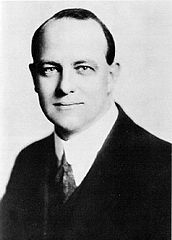I can’t guarantee the truth of that story. It sounds almost too delightful to be true, but I hope it is.
My experience with unpublished manuscripts suggests that very few would-be authors lavish anything like that amount of care on their work. A very large number, in fact, seem not to have even read their own material before submitting it for appraisal. Tangled syntax, obvious misspellings, holes in the narrative – all these faults and more are found in abundance in the manuscripts of aspiring writers.
Why is it that some writers don’t seem to care about the mechanics of their writing? Is it that they regard themselves as artists, and that dealing with the nuts and bolts and oily rags is beneath them? Perhaps they’re taking a cue from some of the many great writers who took such a view. John Steinbeck, for example, was lax about low-level technical matters, as one biographer observed:
‘He sent the handwritten book [Cup of Gold] to his college friend Kate Beswick, who typed it for him. Beswick corrected Steinbeck’s spelling and punctuation, and separated his sentences into paragraphs.
‘Many authors pay careful attention to the small technical details of their writing, such as the placement of commas and periods, but John Steinbeck would always leave those decisions to others. “Why should I bother?” he asked. “There are millions of people who are good stenographers, but there aren’t so many thousands who can make as nice sounds as I can.”’
Catherine Reef, John Steinbeck
But there are few would-be writers who can use that excuse. I’m not talking only about talent; I’m talking about making chances for yourself in a competitive world. Hog-tying the readability of your work is guaranteed to pull you a rejection slip from any publisher you send it to. They’ve got a thousand manuscripts to plough through: why would they struggle through your misplaced punctuation, their/there/they’re substitutions and tangled sentences, with the vanishingly slim chance that there may be a miracle of plotting and characterisation lurking within? Short answer: they won’t.
It’s not just about readability, though. There’s attitude involved. Many, many manuscripts look as if the author hasn’t even read back what they’ve written. Not even once. If you can’t be bothered to read it, who will?
So be your own editor. Read. Review. Polish. Revise. Adjust. Amend. Don’t consider a piece of writing complete until you’ve read it closely at least three or four times. If you can manage the leap of imagination, try to read it through the eyes of a stranger.
If this doesn’t work for you, or you don’t have enough confidence in your ability to spot and correct technical flaws, get someone to edit your manuscript for you. Don’t rely on the comments of a family member or friend; go to an experienced professional. It’ll cost you money (probably no more than a few hundred quid, although it depends on how much editing your work needs), but will help ensure that your creativity gets a fair viewing from prospective publishers and agents.
Isn’t that worth spending time (and possibly money) on?

No comments:
Post a Comment